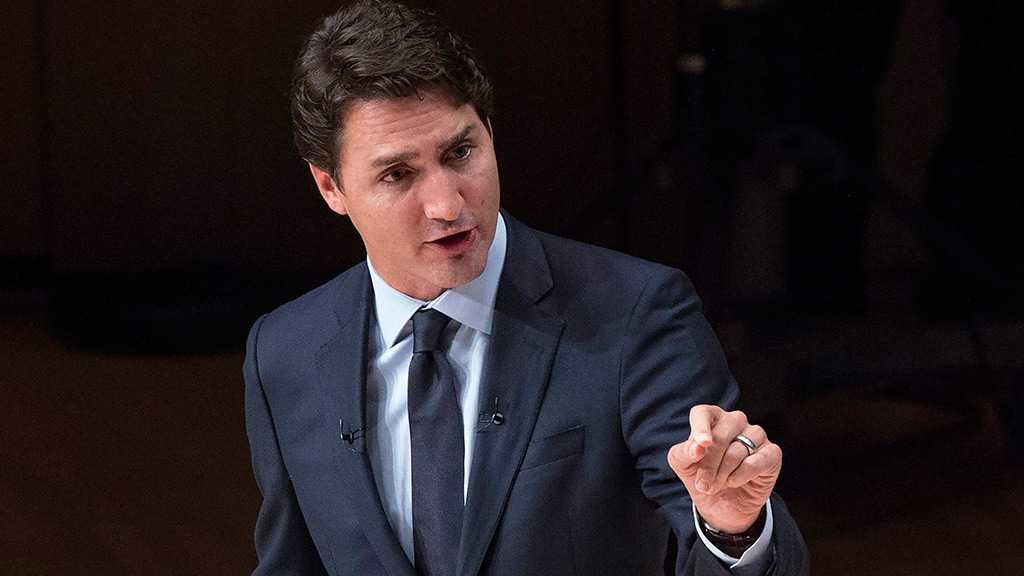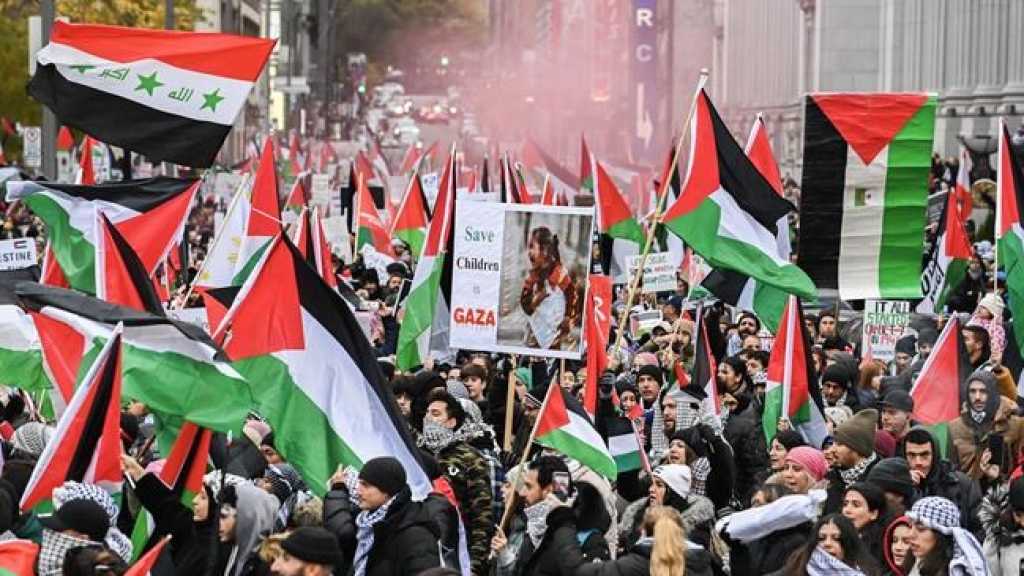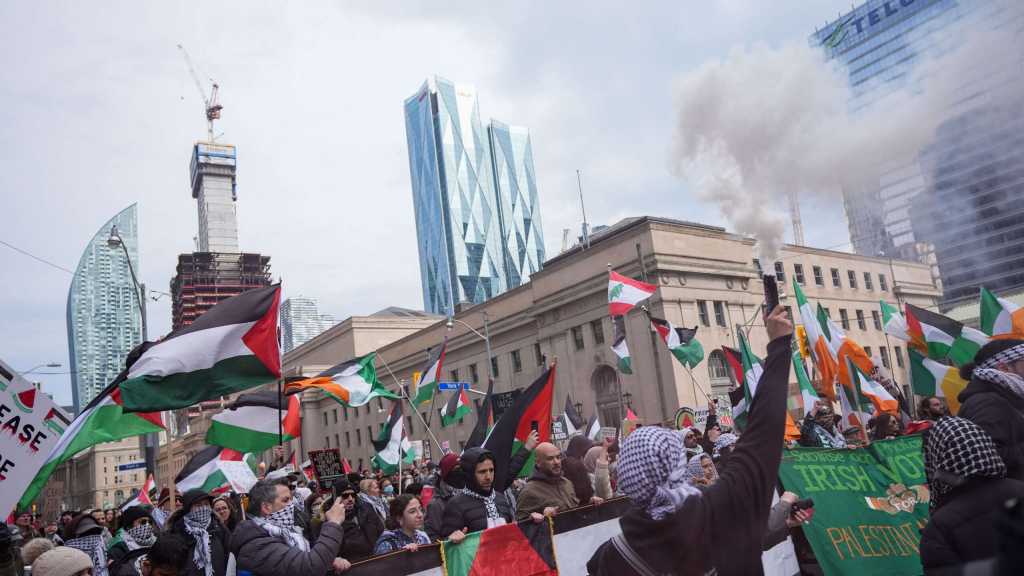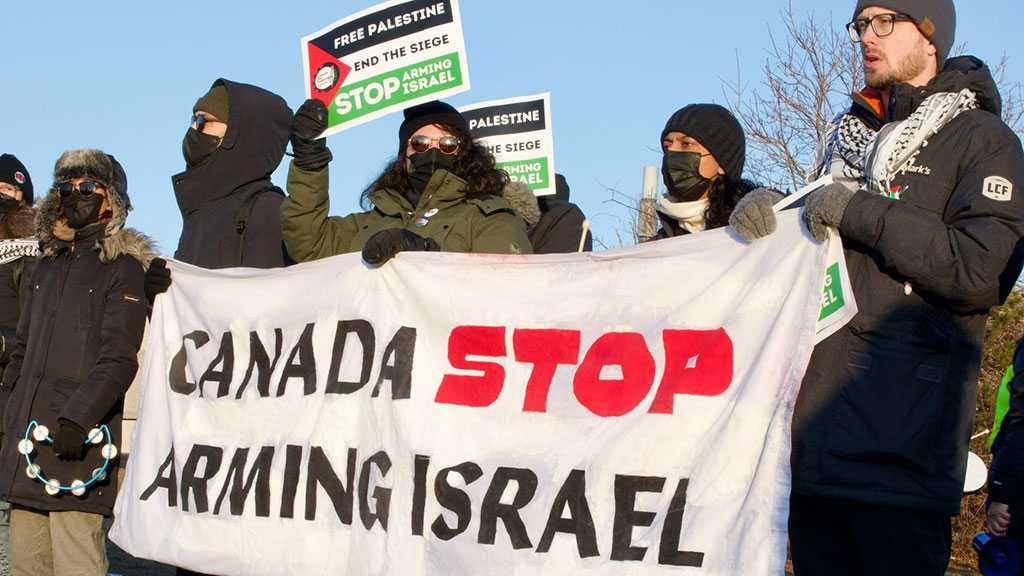
Trudeau Defies Saudi Arabia, Says Canada Will Stand Up for Human Rights

Local Editor
Justin Trudeau has defied Saudi Arabia’s demand to withdraw Canada’s calls for the release of jailed civil rights activists and insisted that Canada will continue to defend human rights around the world, suggesting that the escalating diplomatic row between the two countries is set to continue.
In his first public comments since the spat began, Canada’s prime minister said his government has been speaking directly to the kingdom in an effort to resolve what he called “a diplomatic difference of opinion”.
Trudeau said Canada’s foreign minister had held a long conversation with her Saudi counterpart on Tuesday, but offered no details as to what the pair had discussed.
“We continue to engage diplomatically and politically with the government of Saudi Arabia,” Trudeau told reporters on Wednesday. “We have respect for their importance in the world and recognize that they have made progress on a number of important issues.”
He insisted, however, that his government would continue to press Saudi Arabia on its human rights record. “We will, at the same time, continue to speak clearly and firmly on issues of human rights at home and abroad wherever we see the need.”
Trudeau’s comments came hours after Saudi Arabia’s foreign minister described the row as a “matter of national security,” telling reporters that the kingdom was still considering additional measures against Canada. He did not elaborate on what these measures could entail.
“Canada needs to fix its big mistake,” Adel al-Jubeir told a news conference in Riyadh. “There is nothing to mediate. A mistake has been made and a mistake should be corrected.”
In recent days, several countries have expressed support for Saudi Arabia, including Egypt and Russia, which both told Ottawa that it was unacceptable to lecture the kingdom on human rights.
“We have always said that the politicization of human rights matters is unacceptable,” Maria Zakharova, a spokesperson for Russia’s foreign ministry, told reporters on Wednesday. “What one probably needs in this situation is constructive advice and assistance rather than criticism from a ‘moral superior’,” she added.
Meanwhile, the United States – one of Canada’s closest allies – has so far refused to wade into the row, describing both countries as close allies in a written statement from the state department.
“It’s up for the government of Saudi Arabia and the Canadians to work this out,” said Heather Nauert, a spokesperson for the state department, on Tuesday. “Both sides need to diplomatically resolve this together. We can’t do it for them.”
The United Kingdom was similarly muted in its response, with a foreign office spokesperson saying: “Canada and Saudi Arabia are both close partners of the UK, and we urge restraint during the current situation,” a foreign office spokeswoman said.
When asked whether Canada was prepared to apologies to Saudi Arabia, Trudeau – who in recent years has come under fire for signing off on the sale of more than 900 armored vehicles to Riyadh – skirted the question. “Canadians have always expected our government to speak strongly and firmly, clearly and politely, about the need to respect human rights around the world. We will continue to do that,” he said.
He also dodged a question about the perceived reluctance of the US administration to back Canada in the dispute. “We recognize that every country has the right to make their own decisions when it comes to diplomacy and international relations,” he said. “I’m never going to impose on another country what their reactions should be or what their response should be.”
The spat appeared to have been sparked last week when Canada’s foreign ministry expressed its concern over the arrest of Saudi civil society and women’s rights activists.
Saudi Arabia shot back on Sunday, expelling the Canadian ambassador and freezing new trade with Canada.
In the days following the kingdom has continued to pile on measures against Canada, including plans to remove thousands of Saudi students and medical patients from Canada and the suspension of flights to and from Canada on Saudi Arabia’s state airline.
Saudi Arabia’s main state wheat buying agency, the Saudi Grains Organization, has also told grains exporters it will no longer accept Canadian-origin grains in its international purchase tenders, while the Saudi central bank instructed its asset managers overseas to dispose of Canadian equity, bonds and cash holdings, regardless of the cost, according to the Financial Times.
Analysts and regional officials say that Riyadh’s actions have little to do with Canada; instead, the kingdom’s actions are a broader signal to western governments that any criticism of its domestic policies is unacceptable.
As Saudi-Canadian trade hovers around $4bn, the country was likely seen as an easy fall guy in the kingdom’s bid to reinforce this message, said Bessma Momani, a political science professor at Canada’s University of Waterloo. “Canada is an easy target because our bilateral economic ties are limited.”
Saudi Arabia’s actions likely had the tacit support of Washington, particularly as they targeted Trudeau – a self-declared feminist who has loudly championed progressive policies, she said. “And let’s be honest, the Trump administration, particularly Donald Trump, who has shown animosity to Justin Trudeau, is probably not too sad to see having this government be in the international limelight and be rebuked by the Saudis.”
Others have contextualized the kingdom’s actions as part of a bold new foreign policy unleashed by the country’s powerful crown prince, Mohammed bin Salman.
Projecting strength has become a central concern of the 32-year-old heir to the throne. So has upsetting allies, and starting rows without an apparent follow-up plan.
Meanwhile state-run media in Saudi Arabia said the country had executed and “crucified” a man from Myanmar convicted of killing a woman and carrying out other crimes.
When asked on Wednesday about its decision to arrest the activists at the heart of the diplomatic row, Saudi Arabia’s foreign minister said that charges against them would be made public once their cases reach the courts and repeated earlier allegations that they had been in touch with foreign entities.
Source: The Guardian, Edited by website team



